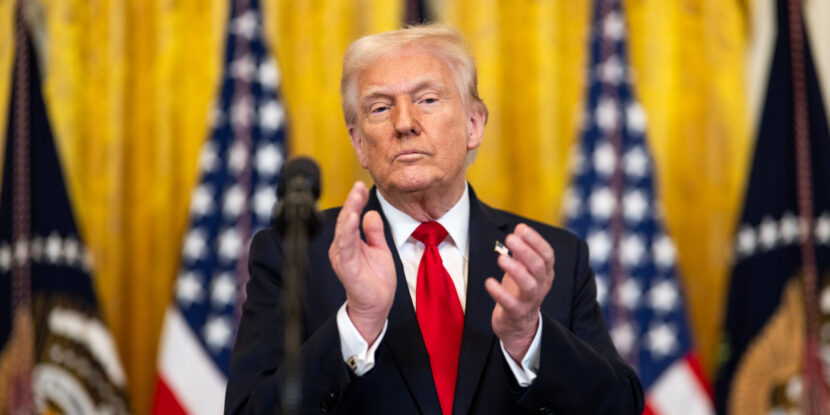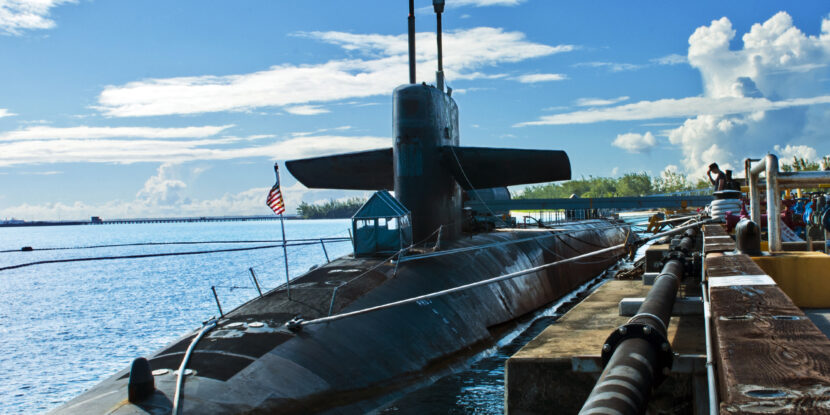
PULSE POINTS:
❓What Happened: U.S. inflation continued to slow in April while incomes rose.
👥 Who’s Involved: The Commerce Department, Federal Reserve, Trump administration, and U.S. courts.
Your free, daily feed from The National Pulse.
📍 Where & When: United States; data reported Friday, May 30, 2025.
⚠️ Impact: The data suggests that President Donald J. Trump’s tariffs have had minimal inflationary impact. Meanwhile, receding inflation signals undermine the Fed’s continued position of keeping interest rates steady instead of enacting a cut.
IN FULL:
A key measure of U.S. inflation slowed last month as consumer prices rose just 2.1 percent in April compared to the same time last year, according to the Commerce Department. This marks a decline from March’s figure of 2.3 percent and represents the lowest rate since September. Core prices, which exclude volatile food and energy categories, increased 2.5 percent year-over-year, down slightly from 2.6 percent in March.
The data indicates a continued decline in inflation from its post-pandemic peak in July 2022, which reached the highest levels in four decades. Despite this, Federal Reserve officials noted during their May 6-7 meeting that inflation remains above their two percent target. The Fed’s policy of maintaining current interest rates, despite the receding inflationary pressure, has sparked criticism. President Donald J. Trump has openly pushed for the central bank to begin cutting rates, and a number of market signals suggest the economy could be moving towards deflation, which would also suggest rate cuts are necessary.
Critics of President Trump’s tariff policies have repeatedly claimed that the trade duties would increase inflation. However, as The National Pulse has repeatedly noted, tariffs—while potentially increasing supply-driven inflation on the front end—have a deflationary effect over time.
Concerningly, the Federal Reserve’s Secured Overnight Financing Rate (SOFR) data has consistently shown a push towards the lower end of the current range of the central bank’s federal funds rate—which sets interest rates for the country. This would suggest that market forces are no longer concerned about inflation but instead are seeking greater liquidity and may be worried about the far more concerning potential for deflation.

PULSE POINTS:
❓ What Happened: Communist China is celebrating British Prime Minister Sir Keir Starmer’s surrender of the Chagos Islands to its ally Mauritius as a “massive achievement,” contradicting Starmer’s claim that Beijing opposed it. The Indian Ocean archipelago hosts a strategic British-American military base.
👥 Who’s Involved: Keir Starmer, Chinese Ambassador Huang Shifang, Mauritius, and the U.S. military.
Your free, daily feed from The National Pulse.
📍 Where & When: The British government signed the Chagos deal with Mauritius on May 22, although ratification is still pending.
💬 Key Quote: “China offers massive congratulations to Mauritius for securing the disputed territory,” Ambassador Huang Shifang said.
⚠️ Impact: Starmer’s deal weakens British and American security, hands China a strategic win, and undermines Trump’s America First stance by risking the Diego Garcia base’s integrity.
IN FULL:
The Chinese Communist Party (CCP) is celebrating British Prime Minister Keir Starmer’s surrender of the Chagos Islands to Mauritius, bolstering Beijing’s influence in the Indian Ocean at the expense of Western security. On May 27, 2025, China’s ambassador to Mauritius, Huang Shifang, hailed the agreement as a “massive achievement,” directly contradicting Starmer’s claim that Beijing opposed the transfer of the Chagos Archipelago to Mauritius.
Mauritius, aligned with China’s Belt and Road Initiative, will be paid billions of pounds by the British government for the privilege of taking the islands. This is in part to pay for a 99-year lease on the island of Diego Garcia, which hosts a major American military base alongside a small British contingent.
Speaking at the Chinese embassy in Mauritius, Ambassador Huang offered “massive congratulations” to Mauritius for securing the territory. She confirmed China “fully supports” Mauritius’s sovereignty push and revealed plans for the island nation to join the Belt and Road Initiative, a sprawling infrastructure project advancing Beijing’s global influence.
Huang also tied Mauritius’s Chagos claim to China’s One-China policy, drawing parallels between the Chagos dispute and China’s stance on Taiwan. The Chinese Ministry of Foreign Affairs echoed this, urging Mauritius to join Belt and Road “as soon as possible” to build a “China-Africa community with a shared future.”
Starmer’s deal, finalized on May 22, 2025, transfers sovereignty of the Chagos Islands, formally the British Indian Ocean Territory, to Mauritius along with £30 billion (~$40.5 billion) over 99 years, in exchange for a lease of Diego Garcia, where Britain was previously sovereign at no cost. However, the Diego Garcia base could now be undermined and potentially rendered redundant if Mauritius allows China to establish a base on another of the Chagos Islands nearby.
Starmer claimed the one-sided agreement was necessary to secure the base, after the International Court of Justice issued an opinion in favor of Mauritius’s territorial claims. However, the United Nations court’s opinion was non-binding and unenforceable, and Starmer was under no obligation to obey it. He also asserted that Britain’s allies supported the deal while “Russia, China, [and] Iran” opposed it, which has now been exposed as a lie by China’s enthusiastic endorsement.
show less

 4 weeks ago
1
4 weeks ago
1








 English (US) ·
English (US) ·